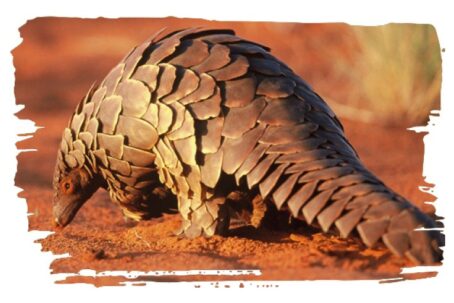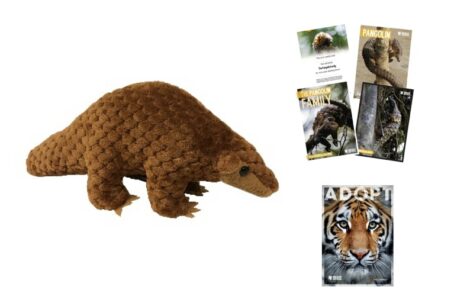
Adopt a Pangolin
This animal is no longer available for adoption.
Try our udopt'r to find the perfect animal adoption for you! >>
Adopt a pangolin and receive
- Your own cuddly toy pangolin to keep at home
- An adoption pack, including a personalised certificate, animal story, fact sheet and glossy photo to display.
- A copy of Born Free’s bi-annual Adopt magazine with exclusive updates.
udopt'r choice
There are in fact eight different species of pangolin, spread across Africa and Asia. All have characteristic armoured plating that acts as the perfect defence mechanism. When under threat they roll into a protective ball and can also secrete a foul-smelling odour much like a skunk. However, their defensive abilities don’t protect them from poaching as they are the most illegally traded mammal.
udopt it because
- All 8 species of pangolin are listed as either critically endangered or vulnerable on IUCN’s Red List. There is high demand for pangolin scales and meat throughout Asia. Their numbers are falling so rapidly that some species could become extinct in the near future.
- Adopting a pangolin with Born Free will support the Born Free-supported Sangha Pangolin Project in the Central African Republic. The project rehabilitates rescued and orphaned pangolins, and returns them back to the wild.
- Adopting an pangolin makes for a fantastic gift. Not only will it delight and educate the recipient but funds will go towards Born Free’s critical work.
- Adoption programmes start from as little as £3.00 a month.
Adopt a Pangolin Gallery
Delivery information
Born Free will process and send your order within 3 working days, and would normally expect it to arrive within 7 working days to addresses within the UK.
All UK orders are sent via Royal Mail 2nd class delivery.
Please allow 28 days for delivery on overseas orders.
Did you know?
- There are 8 species of pangolin; 4 of which are found in Asia and 4 in Africa.
- Pangolins are unique creatures that are covered in hard, plate-like scales. They are insectivorous (feeding on insects) and are mainly nocturnal.
- Their name, “pangolin”, is derived from the Malay word “pengguling”, which loosely translates to “something that rolls up”.
- Pangolins have large, curved claws that they use for excavating ant and termite nests, as well as for pulling bark off trees and logs to find their insect prey.
- They do not have teeth and are unable to chew. Instead, they have long sticky tongues that they use to catch the insects they feed on.









